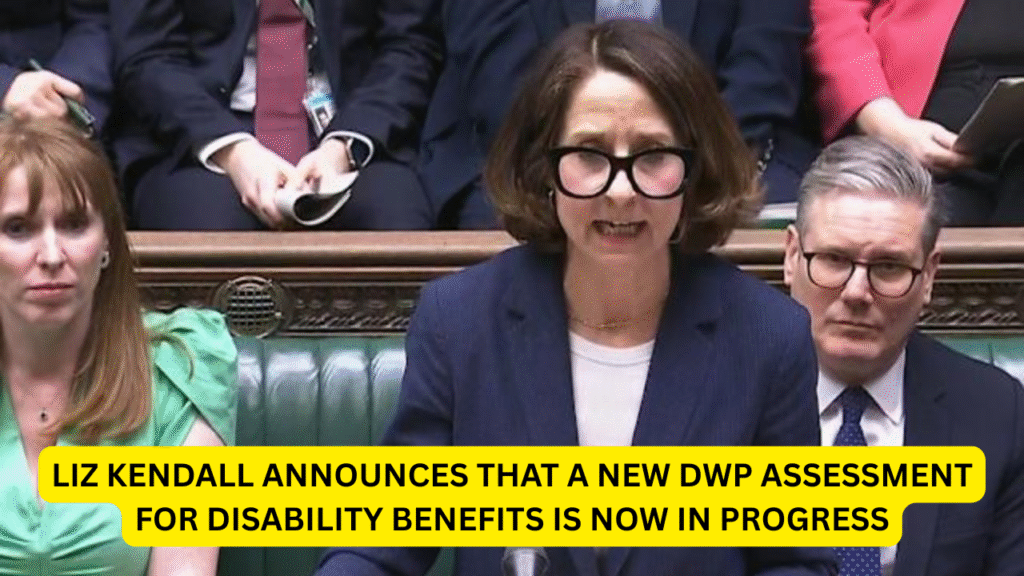The Department for Work and Pensions (DWP) has confirmed that a new assessment process for disability benefits is currently underway, with significant changes to the eligibility criteria for Personal Independence Payment (PIP). This overhaul, part of the government’s broader welfare reform agenda, has sparked both concern and support across the UK. The new process is expected to have a significant impact on thousands of individuals currently receiving disability benefits, with some facing the possibility of losing support altogether.
What Is Changing with the PIP Assessment?
The new PIP assessment process aims to simplify and modernize the existing system. The DWP intends to review the assessment procedure, making adjustments to ensure that individuals who are genuinely in need of financial support are receiving it, while ensuring those who are capable of working are encouraged to do so.
This review is expected to streamline the eligibility criteria for receiving the Daily Living Component of PIP. Under the new guidelines, claimants will be required to score at least four points in a single activity and eight points in total to qualify for the Daily Living Component. This is a significant shift from the previous system, and it is expected to affect around 150,000 individuals.
These changes are set to take effect in November 2026, meaning that individuals who currently rely on PIP could face increased difficulty in securing or retaining their benefits. This change in criteria will have a direct impact on those with certain disabilities who may now fall short of the new points thresholds, potentially leaving them without much-needed support.
Critics Respond: Concerns Over Cuts and Impact
The announcement of these changes has not been without its critics. Over 40 Labour MPs have spoken out against the reform, expressing deep concerns that the new rules would unfairly impact vulnerable individuals and families. Critics argue that the revised eligibility criteria are a thinly veiled attempt to reduce government spending on disability benefits, at the cost of the most vulnerable in society.
Many of the MPs argue that the tightening of eligibility requirements for PIP, alongside the reduction of incapacity benefits for individuals who are deemed unable to work, could affect as many as 700,000 families who are already living in poverty. They have called for a delay in the implementation of these changes until a thorough impact assessment can be conducted. According to these MPs, the reform will only make life harder for those who are already struggling.
As of now, the DWP has not provided a clear explanation of how the new assessment criteria will affect individuals with chronic or long-term health conditions. These individuals may find it especially challenging to meet the new standards, which could lead to a reduction or loss of their benefits, leaving them with fewer financial resources.

Government’s Response: Commitment to Protecting Those in Need
Despite the backlash, Liz Kendall, the Secretary of State for Work and Pensions, has defended the changes, emphasizing that the government’s commitment to helping those who cannot work due to disability remains strong. Kendall assured the public that individuals with severe, lifelong conditions would continue to qualify for the new universal credit health element starting in April 2026.
In an effort to further clarify the government’s stance, Kendall also pointed out that the DWP is working closely with disability advocacy groups and other relevant organizations to ensure that the new assessment process is fair and effective. As part of this review, the DWP has engaged in discussions with individuals and organizations representing the disabled community to understand the potential effects of the new system and explore areas where adjustments might be necessary.
Impact on Families: 700,000 Expected to Be Affected
One of the most concerning aspects of this overhaul is its potential impact on families living in poverty. According to reports from the DWP, the new eligibility rules for PIP could disproportionately affect families that are already struggling financially. Approximately 700,000 households could face reductions in their benefits, leaving them with fewer resources to meet basic needs. This could lead to increased poverty rates among families who rely on disability benefits to make ends meet.
The reduction of incapacity benefits is expected to be particularly harmful to those with long-term health conditions or disabilities that do not allow them to work. Many of these individuals may struggle to meet the new points thresholds, and without proper support, they could find themselves without essential financial assistance.
What’s Next: A Comprehensive Review and Ongoing Discussions
The DWP’s overhaul of the PIP assessment process is still in its early stages, and the government has promised to keep Parliament updated as the process unfolds. The first phase of the review has already begun, with the DWP conducting consultations with disabled individuals and advocacy groups. This feedback will be used to refine the proposed changes and ensure that the new system is both fair and practical.
Liz Kendall has assured the public that the government will continue to monitor the progress of the reform and make adjustments where necessary. However, critics remain unconvinced, arguing that the changes could exacerbate existing inequalities and harm vulnerable individuals.
Conclusion
The new PIP assessment process marks a significant shift in the way disability benefits will be distributed in the UK. While the government insists that the changes are necessary to modernize the system and ensure that benefits go to those who truly need them, critics argue that the reform will have a devastating impact on those who are already struggling.



